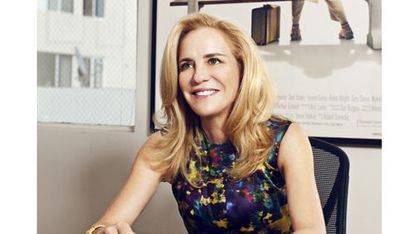
You started your own production company in your mid-20s. How'd you do it?
A woman I greatly admired named Dawn Steel had become president of Columbia Pictures — I had developed projects at Paramount and knew she was a huge advocate for women. I called her and said, "I'm thinking of trying to go out on my own. What do you think?" There wasn't even a pause. She said, "I think it's a great idea. We'll back you. You'll get no salary, but you'll get an office where you can hang your shingle." And that was the beginning. It was really the luck of having the support of this woman.
Is a business background essential for being a producer?
I graduated from the Wharton School of Business, which was very helpful. I love working with numbers; it's actually something that's fun for me. I feel very comfortable going through budgets and can quickly figure out where to find the financial risks and opportunities. Years of crunching numbers drilled into me the skills that I use every single day.
One of your movies, Forrest Gump, went on to become the highest-grossing film of 1994. But nobody was interested in it originally, correct?
It took nine years to make. One of the challenges was that Rain Man had come out during our development process, and some of the studios thought that the two story lines were similar. Another obstacle was that the story of Forrest Gump was very episodic and told in an untraditional way. But I thought it was a great story. I'm drawn to things people can relate to and identify with — and everybody knows someone who looks at the world in a different way.
The movie went on to earn six Oscars. How did you celebrate?
The whole Forrest Gump family attended many after-parties that night. It was great, but in the back of my mind, I was thinking about getting enough rest to drive my kids to school the next day. [Finerman has four children.] It was important to me that they knew they were my first priority, despite the thrill of the Oscar win.
You oversee about 20 film and TV projects at any given time. How do you decide whom you want to work with?
I look for someone whom I would enjoy spending time with. A great way to look at it is, Would you want to sit next to that person as you travel across the country in a plane or if you were stuck in traffic? Are they bright, insightful, entertaining, and, most important, polite? When I hire a writer, it's because I'm impressed with the voice, not because he sold 10 pictures in the last week. And I work only with "we" people. When I hear someone refer to it as "my film," I want to say, "Were you the only person who worked on it?" Somebody with that kind of attitude isn't going to be able to be a team player.
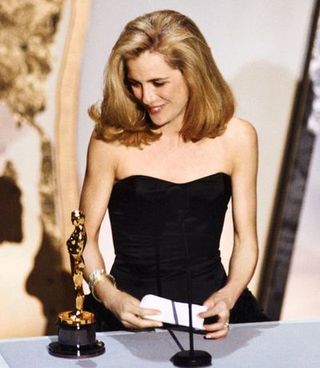
What kind of boss are you?
I pride myself on having continuing relationships with the people I've worked with. My previous assistant Lisa Zupan now runs my company. On the production side, I've been working with some crew members for 15, 16 years. We've worked together over and over again and have built a shorthand. And whether it's the casting agent or the makeup artists, they become like family. We trust each other.
Female producers are a rarity in Hollywood. How do you make it work for you?
Let's face it, it's fun to be a girl when there are 30 guys in the room. It's fun to make a movie with [Top Gun and Enemy of the State director] Tony Scott, who is pretty macho, but totally respects women. I wouldn't be telling the truth if I said I didn't enjoy working with a bunch of talented men.
Stay In The Know
Marie Claire email subscribers get intel on fashion and beauty trends, hot-off-the-press celebrity news, and more. Sign up here.
So it's never gotten in your way?
I was once on a location scout in the South. I was the only woman in the group. The owner of the property we were looking at was being particularly rude to me. After a while he noticed that everyone was talking to me like I had some authority and realized that I may have had some say over how much he was going to get paid. He looked at me and said, "So, what does your husband do on this movie?" And no, we didn't end up using his location.
What advice do you have for up-and-coming producers about breaking into Hollywood?
First I'd try to scare you straight with my "Hollywood is the worst place in the world" speech. If at that point you start to waiver, you really shouldn't be here. Second, learn all different kinds of media — old TV shows and movies, how films are distributed, everything about their shelf life that you can. The more knowledgeable you are, the better understanding you'll have of the entertainment business. Third, you're not making art, you're making a product. Sometimes you get lucky and you really do get a beautiful treasure. But once you become too precious with your creative medium, you lose sight of the commerce. And at the end of the day, I'm in the business of making successful — and profitable — projects.
-
 Bitten Lips Took Center Stage at Dior Fall 2024 Show
Bitten Lips Took Center Stage at Dior Fall 2024 ShowModels at the Dior Fall 2024 show paired bitten lips with bare skin, a beauty trend that will take precedence this season.
By Deena Campbell Published
-
 30 Spring Items That Solve My Expensive-Taste-on-a-Humble-Budget Dilemma
30 Spring Items That Solve My Expensive-Taste-on-a-Humble-Budget DilemmaSee every under-$300 spring item on my wish list.
By Natalie Gray Herder Published
-
 Your Makeup Won't Budge With These Setting Sprays
Your Makeup Won't Budge With These Setting SpraysPrepare for 12-hour wear.
By Sophia Vilensky Published
-
 Don’t Call Allison Statter Kim Kardashian’s Best Friend
Don’t Call Allison Statter Kim Kardashian’s Best FriendShe is. But she’s also the successful founder of Blended Strategy Group, a media relations firm repping the likes of Tiffany & Co. and Revlon. Typically fiercely private, last year she emerged from behind the scenes and into her own.
By Rachel Burchfield Published
-
 Brie Larson on Refusing to Compromise in Her Career
Brie Larson on Refusing to Compromise in Her CareerThe actress shared her advice on advocating for yourself in the workplace.
By Neha Prakash Published
-
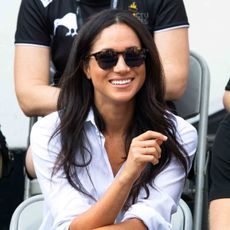 How the Female Founders in Meghan Markle's Closet Launched Their Companies
How the Female Founders in Meghan Markle's Closet Launched Their CompaniesMeghan loves their products—and we love their startup stories.
By Emily Higginbotham Published
-
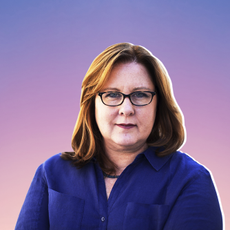 How I Launched a Creative Collective While Working Full-time
How I Launched a Creative Collective While Working Full-timeThey don't call it a side hustle for nothing
By Laura M. Holson Published
-
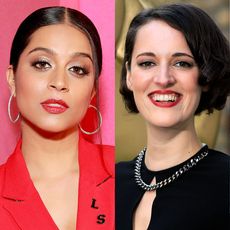 Marie Claire's 7th Annual New Guard
Marie Claire's 7th Annual New GuardThese 50 women made bold moves, raised major capital, and wowed us with their fearless vision.
By Megan DiTrolio, Bobbie Gossage, and Leena Rao Published
-
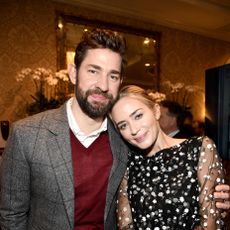 John Krasinski and Emily Blunt Come Out to Support Krasinski's 'Jack Ryan' Costar
John Krasinski and Emily Blunt Come Out to Support Krasinski's 'Jack Ryan' CostarCutest celeb couple Emily Blunt and John Krasinski had a date night in London! They watched a play that stars Krasinski's costar Wendell Pierce.
By Katherine J. Igoe Published
-
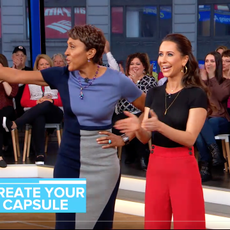 I Respect Jessica Mulroney's Hustle—and Her Loyalty to Meghan Markle
I Respect Jessica Mulroney's Hustle—and Her Loyalty to Meghan MarkleThe royal stylist-slash-BFF has carefully charted a path to greatness.
By Michelle Ruiz Published
-
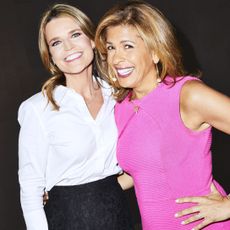 Savannah Guthrie and Hoda Kotb Reflect on Their Historic Year at Today
Savannah Guthrie and Hoda Kotb Reflect on Their Historic Year at TodayThe duo take Marie Claire behind the scenes of NBC’s Today one year after were named the first-ever female coanchors.
By Anna Peele Published